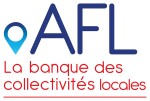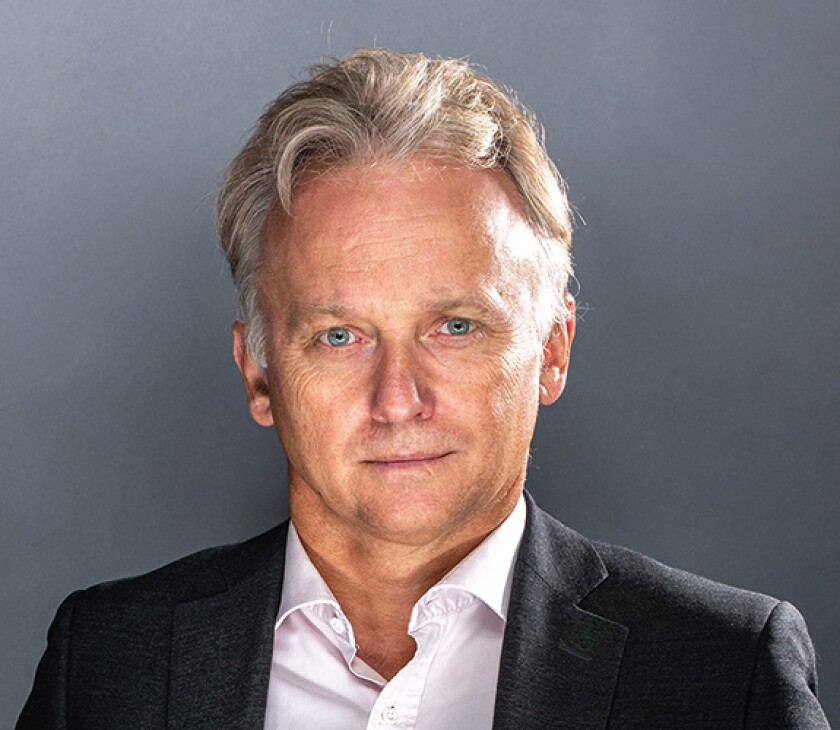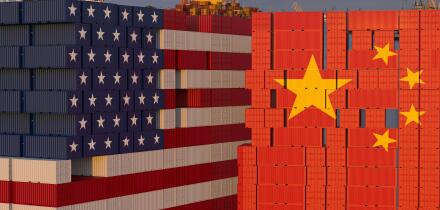A report from French government policy analysis organisation France Stratégie, The economic implications of climate action, published in May 2023, says that €60bn needs to be invested every year until 2030 to finance the ecological transition. Moreover, French local authorities will need to invest an additional €15bn per year to finance energy-efficient renovation of public buildings, water and wastewater networks and the development of new forms of mobility. Given the scope of their powers and the financial impact of their investments, local authorities have a considerable capacity to act. Today, they account for more than 60% of French public spending and only 9% of public debt.
Here, Yves Millardet, chairman of Agence France Locale’s management board, discusses the funding agency’s role.
Why do French local authorities need a funding agency to finance these investments?
“In recent years, local authorities have borrowed just over €16bn each year out of a total investment volume of about €60bn. More than 70% of their investments are therefore self-financed. However, debt is an important lever enabling them to finance major equipment, particularly over the long term. In the mid-2000s, they created their preliminary access to pooled bond financing: they wanted both independence from central government and independence with respect to the European banking sector, which had shown significant limitations during the financial crisis. In other words, they wanted to create their own bank: a responsible bank, fully focused on public interest, whose business model and strategic direction they control. Last but not least, they wanted an interest in the financial outcome of this business, rather than leaving it to other public or private banks.”
Has this bank proved its worth?
“AFL was created thanks to a law the government introduced in July 2013. It began operations in the first quarter of 2015, just after receiving its banking licence. With nearly 800 local authorities among our shareholders – representing almost a quarter of outstanding French local authority debt – we are able to finance more than €1.5 billion in investments each year, making us the fourth largest lender to French local authorities. Among local authority shareholders, AFL had achieved a market share of more than 50% by 2022 – it even ranks as the market leader. However, its value is measured not just by figures but by impact: thanks to its agile operating model and low running costs, AFL manages to control its environmental impact while helping local authorities to make the transition.”
From an investor’s point of view, why choose AFL?

— Yves Millardet
“Since our inaugural issue in 2015, investors have fully understood the benefits of investing in AFL. With more than €9bn raised on the markets under excellent conditions, there is clearly confidence in the bank. Choosing AFL means choosing to support local public investment in France. Choosing AFL means choosing to finance nurseries, cycle paths, tramways, community grocery shops in small villages, health centres in areas that lack of medical care, and so on. Choosing AFL is a guarantee that you won’t be financing fossil fuels or armaments. Choosing AFL means opting for a model with a low risk profile – it does not offer structured products and is committed to embodying a responsible model for the French local community over the long term. Choosing AFL also means choosing the highest-rated bank in France (Aa3 by Moody’s, AA- by S&P), one notch below the French state. Finally, choosing AFL means choosing a developing model with more than €8bn in outstanding loans, about 15% solvency (on a consolidated basis) and gross operating income of more than €3.8m by mid-2023. We consider that an exposure to AFL corresponds to a well-diversified exposure to the French local public sector that is less risky than any single exposure. We also understand investors’ need for liquidity – this is why we have already brought three bonds of €1bn each and will do our best to improve the liquidity of our debt in the future.”
How are you looking ahead to 2024?
“At this stage, we see 2024 as the year in which AFL’s growth will reach new levels. Against a backdrop of higher interest rates, AFL’s model is proving its worth – enabling us to offer competitive pricing to our local authority shareholders. We are confident that the important 2023 flow of new members will continue and that our lending momentum will continue as the needs of local authorities grow. As a result, our refinancing needs will continue to grow and we are looking at a programme of about €2bn over 2024, including €500m in the form of sustainable bonds. We know that 100% of the investments made by local authorities are driven by public policies – and a substantial share contributes directly to achieving the UN’s Sustainable Development Goals (SDGs). In the future, we intend to increase this form of fundraising – but at the moment, for public accounting reasons, we allocate only 40% of local government capital expenditure to sustainable issues. This already represents €1bn since 2020. We want to continue to promote this development because it is our raison d’être.”








